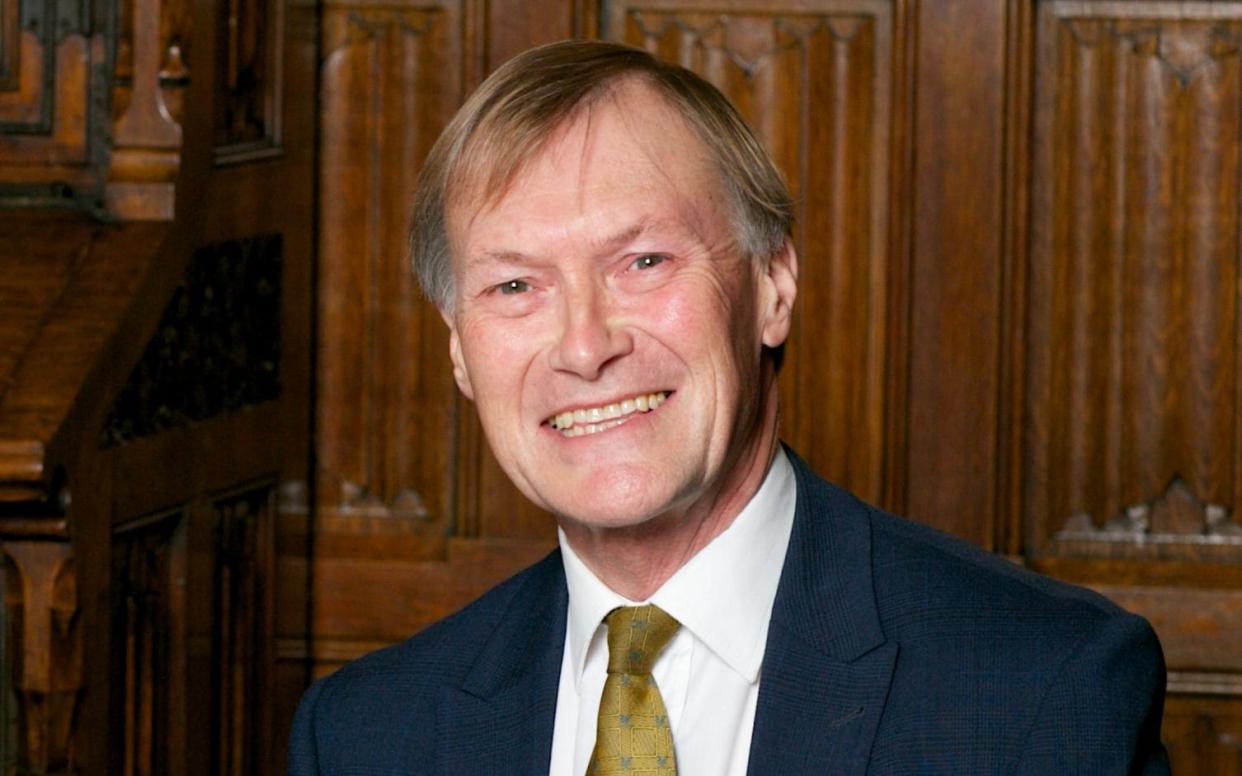Sir David Amess received 'upsetting' threat in days before fatal attack

Sir David Amess received an “upsetting” threat in the days leading up to the fatal attack on him during a routine constituency surgery, it has emerged.
The threat to the veteran MP was made in the past few days and reported to police.
But, despite the threat, Sir David chose to go ahead with his public appointments, including his surgery at Belfairs Methodist Church in Leigh-on-Sea, where he was stabbed to death on Friday at lunchtime.
It is understood that Essex Police received a report of the threat, but they are not connecting it with Friday’s attack.
John Lamb, the former Mayor of Leigh-on-Sea and a close colleague of the murdered MP, said Sir David had received the “upsetting” threat in the past few days.
He told The Telegraph: “The police were alerted about some sort of threat made against Sir David.
“There’s been no threat received through the local Conservative Party offices that I know of, but Sir David had received a threat against him.
“I don’t know the nature of it, but it was rather upsetting and the police were alerted. It was in the past few days.”
Mr Lamb said it had been Sir David’s idea to hold his surgeries in places like the Methodist church, so he could be more accessible to his constituents, rather than in the local Conservative Party offices in Southend.
It is understood this came despite concerns being expressed by some of his staff over the potential security risk at more open venues.
Mr Lamb said: “Sir David used to hold them at the Conservative Association, but that made it hard for older people to see him so around a year ago he started going out into the community. He didn’t want to hide away, he wanted to be visible and accessible. He told me: ‘I want them to be able to see me in their local area’.
“It’s a tragedy that someone has taken advantage of that to attack him like this.”
Sir David’s election agent for Southend West, Nigel Holdcroft, said he understood there had been a threat made in recent days. "I’ve heard via the association,” said Mr Holdcroft.
Threat for MPs is ‘ever present’
“Sadly, I don’t think there’s a member of parliament who hasn’t [received threats]. Unfortunately with social media and the way that it is, that sort of threat is ever present for them.”
It appears that Sir David was determined not to surround himself with high profile security, preferring to remain accessible to all constituents in the seaside town.
The 69-year-old had even written about the dilemma faced by MPs in balancing their own safety with the need to be seen by their voters, for whom they are often the first recourse when problems arise.
He wrote last year that the important British tradition of MPs meeting constituents had been changed forever by the murder of Jo Cox outside her constituency surgery.
In his memoir, In Ayes and Ears: A Survivor's Guide to Westminster, published in November 2020, Sir David said the murder of Ms Cox outside her own surgery had been totally unexpected.
He said he had occasionally experienced "nuisance" from constituents who had shown up at his home, which had led him to regularly check his locks, while other MPs in similar situations had installed CCTV cameras.
Sir David wrote: “The British tradition has always been that Members of Parliament regularly make themselves available for constituents to meet them face to face at their surgeries. Now advice has been given to be more careful when accepting appointments. We are advised to never see people alone, we must be extra careful when opening post and we must ensure that our offices are properly safe and secure. In short, these increasing attacks have rather spoilt the great British tradition of the people openly meeting their elected politicians.”
Mr Holdcroft said: “Sir David was aware that security was a risk, particularly after the incident [involving Jo Cox] but he was just determined to continue that close contact with residents and just accepted it as one of the risks of the job.”

 Yahoo News
Yahoo News 
